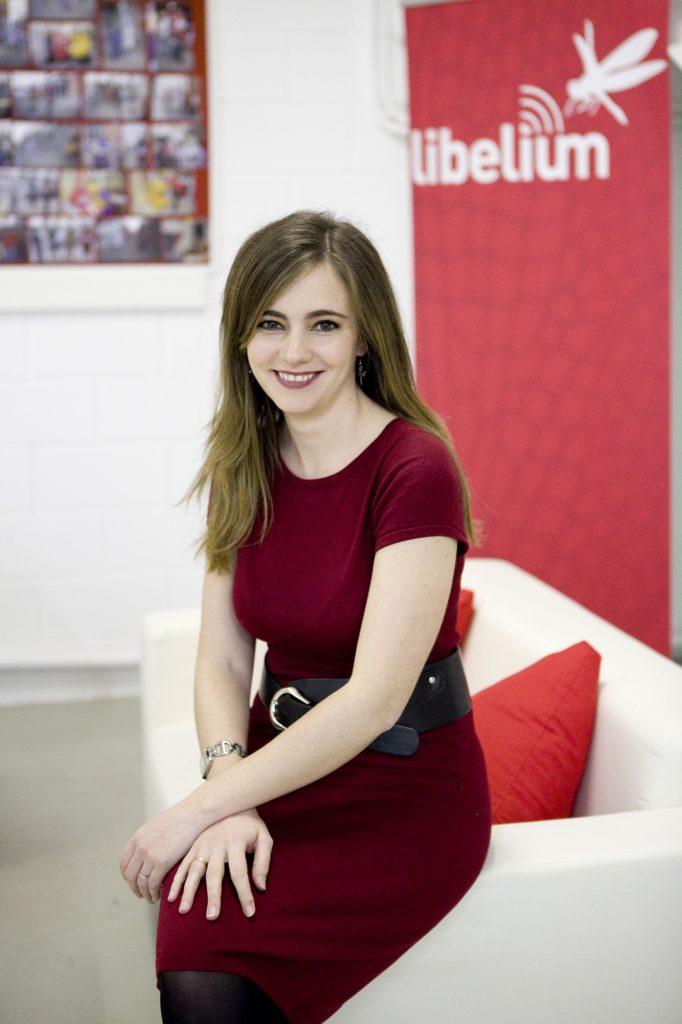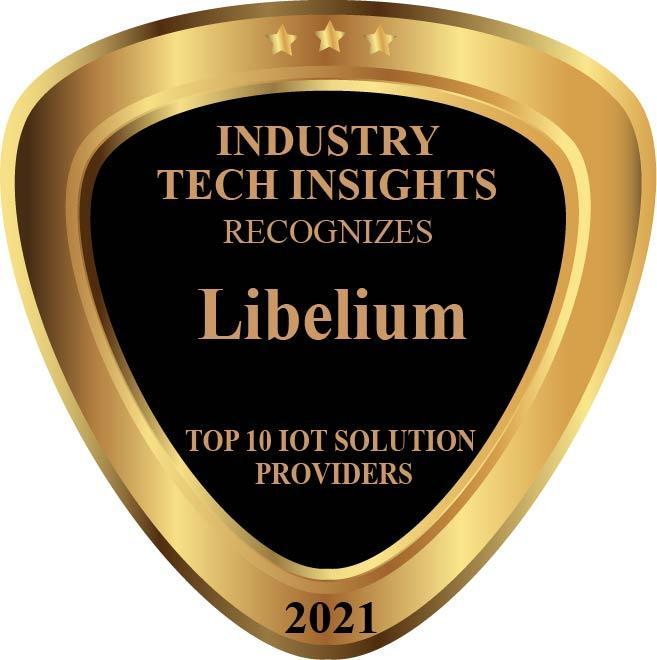
- January 23, 2026 11:55 pm
- California

Alicia Asín Pérez
Co-founder and CEO
Libelium, a specialist in IoT technology since 2006, has evolved to a complete solution provider by incorporating new services for IoT projects, offering customers different business models, and adapting to new market trends.
“Our value proposition lies in the 15 years of experience we have of the IoT sector”, says Alicia Asín, CEO of Libelium. “Our customers want more than just the excellent solutions we offer; they want to be able to access our expertise across the whole process of their project development, from design and configuration right through to implementation. We are listening to that demand, and now evolving into a global solutions company that can offer new and innovative business models promoting project investments to move from CAPEX to OPEX.”
IoT projects require investment in both hardware and infrastructure, but the real value that they bring is in the crucial data and information that they provide. Both of these component parts of an IoT project cannot evolve independently and require constant monitoring in order to optimize outcomes for the customer.
“The winds of change are blowing and Libelium knows how to adapt to them by spreading the wings of its corporate dragonfly”, says Alicia referring to the new corporate identity launched today to coincide with the company’s new business offering. “Libelium is no longer just a product provider; it is a travel companion that smooths the way for IoT in all of its stages, from data capture through to the extraction of its value.”
The new corporate identity also includes a website refresh. Its new digital presence is focussed on going beyond its product portfolio and showcasing Libelium’s vertical solutions for different markets. Libelium’s growth is based on the great ecosystem of hardware, software, cloud, and system integration companies that offer interoperability on any part of the IoT value chain.
“We continue to trust and rely on our partners, as we do not pretend to be experts on every aspect of the IoT chain,” says Alicia. “We are ready to lead complete thanks to the collaboration with experts in a number of different areas of IoT. As we evolve, we are already looking to increase the base of our ecosystem of experts by signing new collaboration agreements with manufacturers of sensor devices that want to join our platform”. Libelium’s technology enables applications as diverse as precision agriculture, smart cities, water management, environmental monitoring, parking space detection, and many other solutions for companies in the industrial, logistics, retail, and tourism sectors.

Libelium’s new website showcases the services and products that allow the development of entire IoT projects across these various industries. Libelium will also be able to give its users access to all of its technical expertise through a new wiki that gathers more than 60 technical guides, APIs and programming code examples for IoT devices.
Inception of the Company
The story of incorporating Libelium is that of bootstrapping. Alicia Asín, Co-Founder & CEO along with David Gascón, Co-Founder & CTO, started the company in 2006, right after graduating. From the starting, they wanted to do something viable, and we focused on revenue. Positive cashflow was their obsession. Because of that, they started with Cooking Hacks. It made it possible to finance Libelium and acquire capital for R&D that enabled them to build the Waspmote sensor network. It has also given them the legacy of working closely with makers and universities.
Libelium designs and manufactures wireless sensor network devices so that system integrators, engineering, and consultancy companies can deliver reliable Internet of Things (IoT), M2M, and Smart Cities solutions with minimum time to market. Established in 2006, Libelium is privately held and has headquarters in Zaragoza, Spain. Waspmote—Libelium’s open wireless sensor platform—is modular, easy to deploy, and ready to integrate with third-party Cloud systems such as Microsoft, IBM, Indra, Esri, ThingWorx, or MQTT.
Over 2,000 developers from 115 countries in companies ranging from startups to universities to large international corporations have adopted Libelium’s hardware and software technology for projects in North America, Australia, Asia, and Europe. Commercial deployments based on Waspmote include applications as varied as parking, traffic congestion, environmental monitoring, and precision agriculture.

The Unique Solution
Alicia & David are the Internet of Things enablers. They offer a modular, parallel, and open source wireless sensor hardware platform that transfers any sensor data, using any communication rules to any information system. In other words, Waspmote sensor device can be utilized for detecting free parking spots, to improve measure pollution levels, wine quality, and air quality, produce noise maps, save water in irrigation, and more. Following the horizontal approach means resigning from direct way to the end-user market in favor of working very closely with skillful partners in each area or vertical. Thanks to this program, they now sell their products in 75 countries worldwide.
Libelium Waspmote and Plug & Sense! Families extend monitoring capabilities to 120 sensors to incorporate hundreds of IoT applications such as Smart Environment, Smart Water, Smart Cities,Smart Parking, Smart Agriculture, etc. Some of the present air and water sensors have been upgraded for better accuracy on particle measurement (ppm’s). The latest version also includes actuators to control DC units such as watering valves, thermostats, illumination systems, motors, PLC’s, etc.
Lastly, new energy-saving modes extend nodes’ lifetime from 5 to 10 years.In a highly fragmented IoT market, interoperability is critical to ensure Libelium technology will fit any project. The new version has updated and certified the following communication radios: LoRaWAN, Sigfox, WiFi, 4G, 802.15.4 / ZigBee, 868 / 900 RF. Also, the Plug & Sense! 4G US model is the first sensor device passing PTCRB and AT&T compliant device tests, opening the door for the big IoT cellular projects coming in the US market.
According to Alicia, when they started, the market was industrial. “It’s been like that with every technology. It first entered the enterprise and then became a consumer product. Think about cell phones that were first used by business people. Or about personal computers. You didn’t have a personal computer for yourself until all the companies started using them.” “The problem with IoT is that we’re living in exponential times, and we’re seeing these two ways overlapping. And now there’s the problem of hype. When you go to the late majority, they’re still listening to the things about the connected fridge or that stupid egg thing from Quirky. And they say: you know, I think you’re talking about toys. And you’re trying to bring toys into an industrial environment.”
Integration of customized IoT projects
Libelium is tailoring IoT solutions to enhance industrial competitiveness. In a technological business where the demand for professional solutions is frequently challenging, Libelium has decided to concentrate on the strategic shift to offer complete IoT technology solutions concentrating in vertical applications. In this way, Libelium is increasing its market placement towards to become a system integrator.
Alicia states that “the market is developing towards projects that require increasingly specific, accurate, and high-quality technology. For this reason, we are going forward by directing all our experience and expertise as device manufacturers towards strategic advising to offer customers the solutions they demand, either with goods from our catalog or with combination from third parties.”
This is possible recognition to the vast ecosystem of partners that Libelium has been expanding since the launch of The IoT Marketplace as a meeting time for “ready-to-use” solutions that include software, hardware, and cloud connectivity.
In fact, at IoTSWC19 in Barcelona, Libelium showcases solutions for Smart Cities (smart parking, water quality management, smartphone detection, and air condition monitoring), Smart Agriculture (crops and farm intelligent management, solar panels performance) and Industrial IoT (tracking, smart industry, safety) among others answers.
Among the best solutions at the stand, Libelium highlights the use of IoT for reinforcements such as parking to boost urban mobility; industry to enhance competitiveness, retail to enhance the customer knowledge; pollution to recover environment; agriculture to improve crop productivity and solar energy to optimize performance.
Focused on the Future and Smart Cities
Libelium concentrates on smart cities and agriculture, which so far have been the most influential verticals for them. And also verticals where they have the greatest expertise, so that’s natural. Also, smart cities need products with a similar approach to Libelium’s. When they design merchandise, they always think about interoperability. Libelium strives to connect any sensor, utilizing any communication protocol, to any cloud service. That’s why they are an ecosystem business.
“This is interesting for municipalities because professional companies shouldn’t hijack them. A city should be able to change their cloud service provider after five years if they’re not satisfied. If a wireless technology they’re using is not working, they should be able to change. Once you’ve installed the infrastructure and spent all the money, it’s doubtful you’re going to replace the devices,” adds Alicia. “Instead, if you have your installation and can adapt to a different protocol, you have all your options clear. It’s the same with cloud services. When we say we’re integrated with various cloud platforms, we mean that you can configure your gateways in our GUI and start transferring data. And if you’re not happy after six months or a year, you can deactivate it plus activate another one. This is especially needed in the smart city context, and that’s why our solution furnishes so well there.”
According to Alicia, appropriately used, IoT can help foster democracy in cities. Data would produce more rational decisions and clarity. And if all data would be public, citizens could check the progress of their towns. But going ahead, if cities are generating data and advertising it in an accessible format, startups could use it to build new services. It’s similar to the Green Button Initiative with energy in the US that enables companies to develop apps to guide you on power consumption. That could be extended to a complete city.

“The winds of change are blowing and Libelium knows how to adapt to them by spreading the wings of its corporate dragonfly”